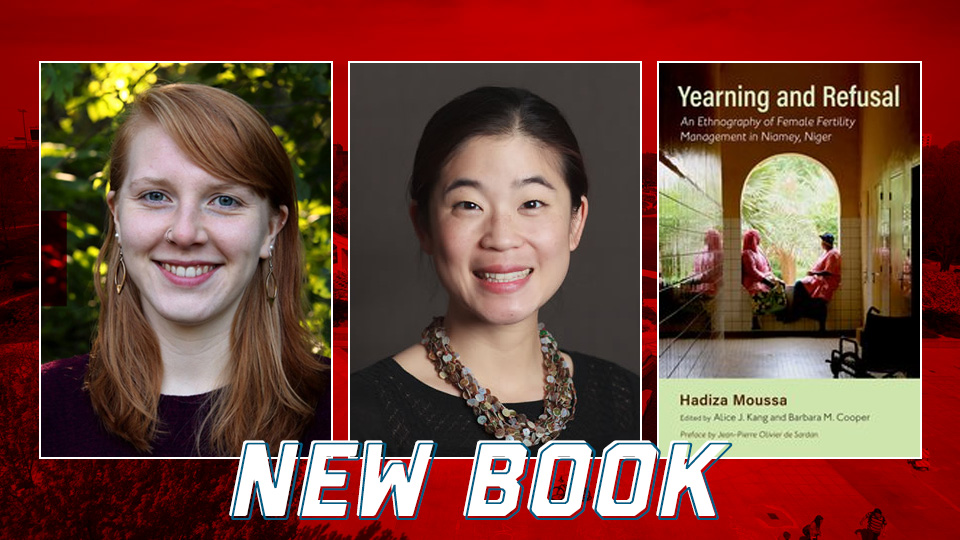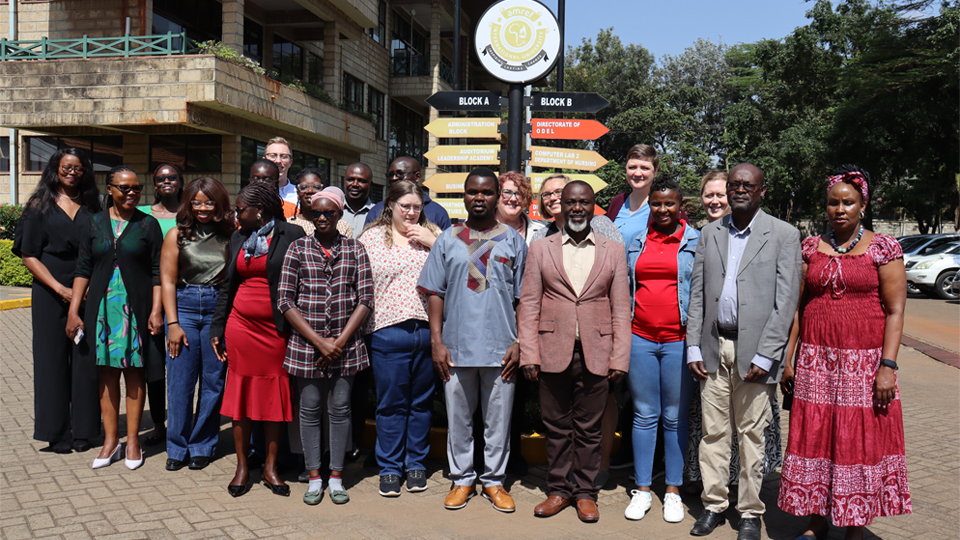
The book "Yearning and Refusal: An Ethnography of Female Fertility Management in Niamey, Niger," co-edited by faculty member Alice Kang and translated by alumna Natalie Kammerer, has been published by Oxford University Press in their "Public Health" category.
Kang is an associate professor of ethnic studies and political science and a scholar of comparative politics and women, gender, and politics with a world regional focus on Africa. She teamed up with Barbara Cooper of Rutgers University for the editing.
Kammerer works for MosaLingua and History Nebraska. She graduated with a B.A. in French (and art history from the College of Fine and Peforming Arts) in 2016 and an M.A. in French language and literature in 2019.
Written by Hadiza Moussa of Abdou Moumouni University, the book draws on first-hand observations in health centers and in-depth interviews with people who have tried and not been able to become pregnant. She examines the consequences of both yearning for children and refusing to bear them and how the women navigate the medical system and society. Moussa passed away in 2013.
Additional Background
While female infertility in the Global North is increasingly being recognized as a public problem, struggles by African women to conceive are strikingly overlooked by international organizations and national governments that favor instead population control. At the same time, many women seek to limit their fertility, at least temporarily, and find themselves negotiating with a wide range of people and institutions, each with their own assumptions and priorities. More common than publicly recognized, inhospitable medical personnel and social norms limiting access to contraception sometimes leave women with no choice but to induce abortion. The problems faced by those with fertility conditions are particularly profound in the Republic of Niger, where producing children is central to being considered a woman, a wife, and a person.



